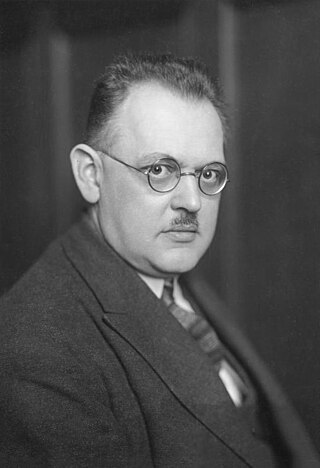
Hermann Müller was a German Social Democratic politician who served as the Foreign minister (1919–1920),and twice as the Chancellor of Germany in the Weimar Republic. In his capacity as Foreign Minister,he was one of the German signatories of the Treaty of Versailles.
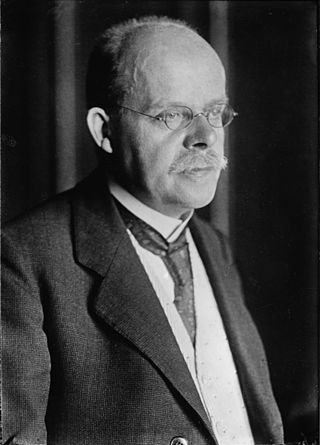
Wilhelm Marx was a German judge,politician and member of the Catholic Centre Party. During the Weimar Republic he was the chancellor of Germany twice,from 1923–1925 and 1926–1928,and served briefly as the minister president of Prussia in 1925. With a total of 3 years and 73 days,he was the longest-serving chancellor during the Weimar Republic.

Count Christian Günther von Bernstorff was a Danish and Prussian statesman and diplomat.

Karl Rudolf Heinze was a German jurist and politician. During the Weimar Republic,as a member of the right-of-centre German People's Party (DVP) he was vice-chancellor of Germany and minister of Justice in 1920/21 in the cabinet of Konstantin Fehrenbach and from 1922 to 1923 again minister of Justice under Wilhelm Cuno.

Robert Schmidt was a German trade unionist,journalist,politician and member of the Social Democratic Party of Germany. He served as the minister of Reichsernährungsminister (Alimentation),Reichswirtschaftsminister and Reichsminister für Wiederaufbau (Reconstruction) in a number of cabinets of the Weimar Republic.

Erich Klausener was a German Catholic politician and Catholic martyr in the "Night of the Long Knives",a purge that took place in Nazi Germany from 30 June to 2 July 1934,when the Nazi regime carried out a series of political murders.
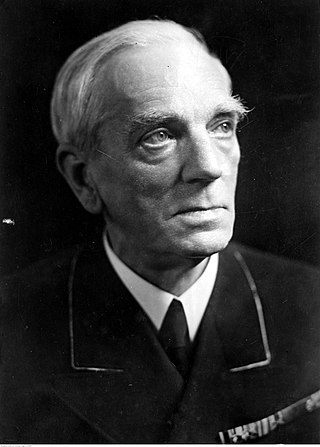
Erwin Konrad Eduard Bumke was the last president of the Reichsgericht,the supreme civil and criminal court of the German Reich,serving from 1929 to 1945. As such,he should according to the Weimar Constitution have succeeded Paul von Hindenburg as the President of Germany upon the latter's death in August 1934 and thus the Head of State of Nazi Germany. The Law on the Head of State of the German Reich,passed by the Nazi-controlled Reichstag,unconstitutionally prevented that by combining the presidency with the chancellorship,making Adolf Hitler the undisputed Führer of Germany.

The Invalids' Cemetery is one of the oldest cemeteries in Berlin. It was the traditional resting place of the Prussian Army,and is regarded as particularly important as a memorial to the German Wars of Liberation of 1813–15.
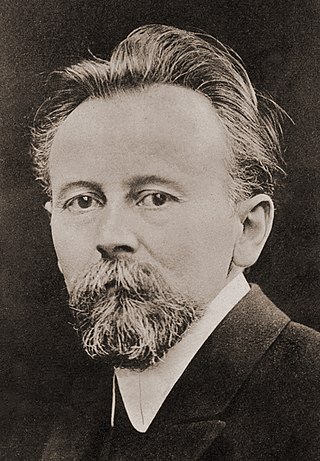
Eduard Heinrich Rudolph David was a German politician. He was an important figure in the history of the Social Democratic Party of Germany (SPD) and of the German political labour movement. After the German Revolution of 1918–19 he was a Minister without portfolio in the government of Philipp Scheidemann,before becoming Minister of the Interior in June 1919 in the succeeding government headed by Gustav Bauer. David remained in that position until October of that year.

Erich Koch-Weser was a German lawyer and liberal politician. One of the founders (1918) and later chairman (1924–1930) of the liberal German Democratic Party,he served as minister of the Interior (1919–1921),vice-chancellor of Germany (1920) and minister of Justice (1928–1929).

Rudolf Wissell was a German politician in the Social Democratic Party of Germany (SPD). During the Weimar Republic,he held office as the Minister for Economic Affairs and Minister for Labour.
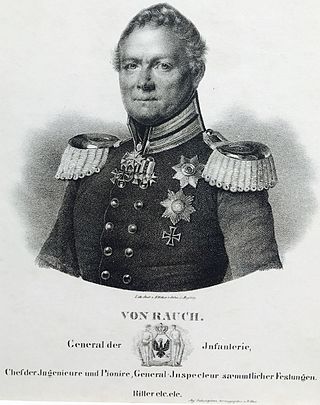
Johann Justus Georg Gustav von Rauch was a Prussian general of the infantry and Minister of War from 1837 to 1841.
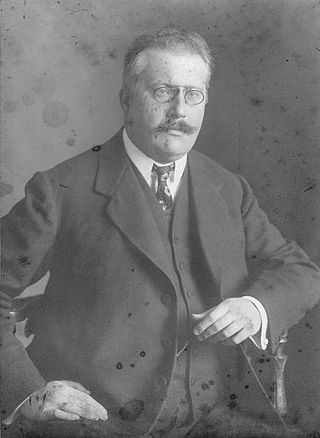
Julius Bittner was an Austrian composer.

The House of Alvensleben is an ancient,Low German (niederdeutsch) noble family from the Altmark region,whose earliest known member,Wichard de Alvensleve,is first mentioned in 1163 as a ministerialis of the Bishopric of Halberstadt. The family name derives from Alvensleben Castle. They are one of the oldest extant German aristocratic families.

Wolfgang Heine was a German jurist and social democratic politician. Heine was a member of the Imperial parliament and the Weimar National Assembly,he served as Minister President of the Free State of Anhalt and Prussian Minister of the Interior and Justice.

Rudolf Oeser was a German journalist and liberal politician. From 1922 to 1924 he was a member of several governments of the Weimar Republic,serving as Minister of the Interior and Minister of Transport.
Joseph Koeth was a German military officer and politician. During World War I he served as head of the Kriegsrohstoffabteilung of the Prussian Ministry of War created by Walther Rathenau. After the German revolution of 1918,Koeth was in charge of economic demobilisation as a member of the first democratically elected government under Philipp Scheidemann. He again served briefly as a minister of the Weimar Republic under Gustav Stresemann in 1923.
Gustav Hermann William August Koenigs was a German lawyer and State Secretary of Transport during the Weimar period and the Third Reich. The conspirators of the 20 July plot planned for him to become Reich Transport Minister had the coup d'état succeeded.
















